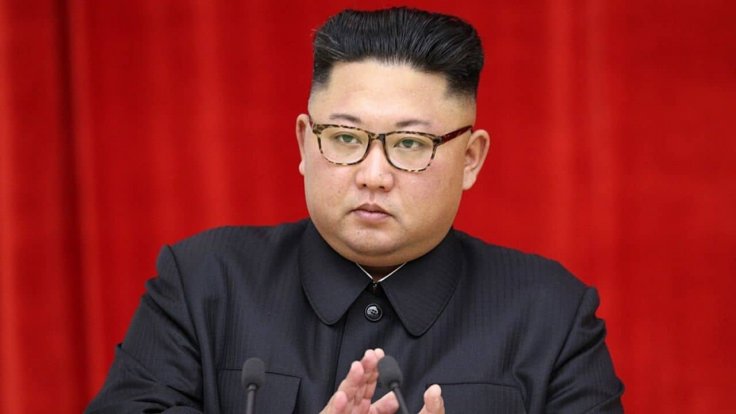North Korea recently executed two women accused of helping their fellow citizens defect to South Korea. These executions took place on August 31, 2024, in the northeastern city of Chongjin following a public trial. The women named Ri and Kang, aged 39 and 43, were charged with aiding North Koreans to escape through China. This information was reported by Radio Free Asia (RFA), a US government-funded media organization.
According to Jang Se-yul, head of the human rights group Gyeore'eol Unification Solidarity, the women were involved in helping North Koreans leave their country by facilitating their journey to China. Once in China, the women had reportedly been sold to work in adult entertainment businesses. However, their roles expanded when they began assisting other North Korean women who expressed a desire to escape to South Korea. They helped arrange safe passage for these women to reach the South, a country viewed as an enemy by North Korea.
The executions of the two women followed a 1-hour public trial, which was held in a marketplace in Chongjin. Hundreds of local residents, including merchants, were present to witness the trial, which lasted approximately one hour. According to reports, the trial ended with the swift execution of the women by officials from Hamgyong province. The incident marked a severe punishment for aiding defections, a charge that carries significant consequences in North Korea.

These two women were executed for sending North Korean escapees from China to South Korea, which is considered an enemy country. After their own escape, they were sold into a Chinese adult entertainment business. When other North Korean women there expressed a desire to flee to South Korea, they helped arrange their escape.
In addition to these two women who were executed, nine other women were sentenced to life imprisonment on the same charges of human trafficking. These women were also accused of helping their fellow citizens flee to South Korea. Jang Se-yul told RFA that the women had been specifically targeted for facilitating the escape of North Korean citizens to what the North Korean government considers an enemy nation.
The issue of North Koreans attempting to flee the country has been an ongoing concern since the devastating famine of the 1990s. Many of those who try to escape are women from the poorer northern regions of North Korea, where the country shares a long and porous border with China. These women often risk dangerous conditions in their attempt to reach safety outside of North Korea.
Over the years, the number of North Korean defectors has grown, with some even coming from the elite classes. According to South Korea's unification ministry, defectors from wealthier and more privileged backgrounds have increasingly attempted to leave the North in search of a better life in South Korea. The South offers a range of incentives, including citizenship, almost-free housing, resettlement funds, and other benefits to defectors, making it an attractive destination.
The 11 women sentenced in August 2024 were part of a larger group of 500 North Koreans who had been repatriated by China in October 2023. Despite calls from international human rights groups, China does not recognize North Koreans who flee the country as defectors. Instead, the Chinese government labels them as "economic migrants." A Chinese foreign ministry spokesperson has previously stated that there are no "so-called defectors" in China and that the government would continue to handle the situation according to its laws and humanitarian principles. As a result, China has been sending North Korean defectors back across the border, where they face severe punishment upon their return.
Reports from human rights organizations and the South Korean government reveal that defectors repatriated to North Korea often face brutal punishment. Those returned to the country are frequently sent to labor camps, where they endure harsh treatment, poor conditions, and forced labor. Many defectors are subjected to abuse, and the camps are known for their dangerous living conditions. Despite widespread reports of human rights violations, North Korea has consistently denied these allegations, claiming that such reports are part of a conspiracy to destabilize its leadership.
North Korea has a history of public executions, which have often been held in villages and prison camps where local residents could gather to witness the event. However, recent reports suggest that the government has moved away from conducting executions in highly populated areas, likely to prevent uncontrollable crowds from attending. The execution of the two women in Chongjin represents one of the rare instances of a public execution held in a crowded marketplace.
Jang Se-yul also reported that one of the victims had a younger sister who had successfully escaped to South Korea with her help. The sister reportedly expressed deep sorrow and grief over the execution. She shared that her sister had helped many other North Koreans escape to South Korea, risking her own life to provide others with the chance for freedom. Jang mentioned that the sister "cried a lot" after learning about the execution, highlighting the personal toll such harsh punishments take on families and individuals.
This case has drawn further attention to the ongoing struggles of North Koreans attempting to escape their country's strict regime and the severe consequences they face if captured. It underscores the continuing human rights concerns surrounding North Korea's treatment of defectors and those who assist them in their efforts to flee.









